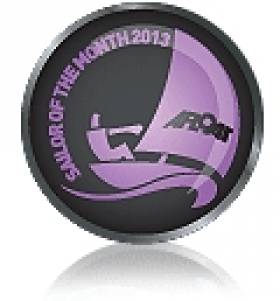Displaying items by tag: Fergus Quinlan
Sailors of the Month Fergus & Kay Quinlan
#sailorsfofthemonth – Fergus and Kay Quinlan's three year voyage around the world in their own-built 12m steel cutter Pylades has been an inspiration to Ireland's sailing community. And now it has received international acclamation from the premier global voyaging organisation, the Ocean Cruising Club, which has given the County Clare couple – who sail from Kinvara on Galway Bay – the special OCC Award for those "who have done most to foster and encourage ocean cruising in small craft and the practice of seamanship and navigation in all branches".
The magical cruise of the Pylades has already been awarded the Irish Cruising Club's senior trophy, the Faulkner Cup (which dates from 1931), for an unprecedented three years in a row. And for the many in Ireland who have been following the cruise, it comes as no surprise that the experienced adjudicators in the Ocean Cr C have also found the cruise of the Quinlans to be both an informative entertainment, and a realistic encouragement to those who would hope to do something similar.
Realism and the realisation of the ocean voyaging dream were the themes of their achievement. It began prosaically enough. Once they'd decided to do it, Fergus went off and took a welding course so that they could build the boat themselves from scratch. They built her very well – the van de Stadt-designed Pylades looks good, and she has come through everything the oceans of the world could throw at her in a 40,486 mile voyage.

Two sailors ashore, high in the mountains – Fergus and Kay Quinlan in the midst some hill climbing on the island of Reunion in the Indian Ocean.
At the Irish Cruising Club's Annual Dinner in Galway on March 9th, Fergus was the main speaker, and his entertaining musings were purest gold on the enduring attraction of ocean cruising "when we find ourselves on the back of a vast surging ocean entering a dream world, a dream world of boundless horizons. In daylight, we scan the sky for those elusive small white puffy clouds that might indicate the trades. At night, we are transfixed with the shifting rhythms that play on sea and sail, our furrowing of the deep disturbs a billion luminescent swimmers who stream away from our stern in sheets of fading phosphorescence".
Truly inspirational, the cruise of the Pylades has quietly and movingly set a standard to which the rest of us can only aspire.





























































